-
Israel concerned about ISIS-affiliated groups in Syria attacking Israel
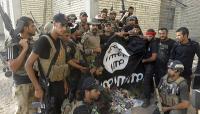
Israel security officials worry about the possibility that Shuhada al-Yarmuc, a small , ISIS-affiliated Jihadi organization operating in the southern area of the Syrian Golan Heights, would, in line with the emerging ISIS strategy of staging spectacular attacks in Western countries, try something similar in Israel.
-
-
Rail safety delays; Chicago’s trigger-happy police; killing Bangladeshi bloggers

In October the Congress agreed to extend the deadline for installing the systems to 2018, but earlier this month Congress extended the deadline for deploying speed-control systems yet again, this time until the end of 2020; By June 2016, all Chicago police officers will be equipped with non-lethal Tasers. The move is part of a plan by city authorities to curb the sharp rise in the number of people – all of them African Americans — killed by police shooting; in 2015 alone, at least four pro-democracy bloggers and a publisher were murdered while others went into hiding, or fled abroad, prompting widespread calls for protection of free speech in Bangladesh from the threat of radical Islamists.
-
-
Examining how ISIS’s martyrdom appeals affect the brains of potential recruits
Understanding the reasons why young people are susceptible to recruitment by violent extremist organizations like the ISIS is a formidable undertaking requiring a multidisciplinary approach. An ambitious U Chicago research — the Social and Neurological Construction of Martyrdom Project – will use functional magnetic resonance imaging (fMRI) to investigate the neural pathways through which martyrdom appeals evoke sympathy in the viewer. They aim to uncover exactly what is happening in the brain when an individual is persuaded to change their beliefs. Until now, there has not been a method to study whether it is a message’s intellectual content or emotional impact that resonates with a viewer. By using fMRI, researchers can see what areas of the brain “light up” when specific messages are heard. The project has been awarded $3.4 million by the Defense Department’s Minerva Research Initiative.
-
-
Majority of Americans believe it is sometimes necessary for govt. to sacrifice freedoms
Survey conducted after the Paris and San Bernardino attacks finds a majority of respondents from both parties think it is acceptable for the government to analyze the Internet activities and communications of American citizens without a warrant.
-
-
Study links insurgency phase of Iraq War to higher PTSD rates
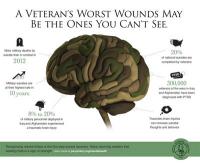
Guerilla tactics such as suicide attacks and roadside bombs may trigger more posttraumatic stress than conventional warfare, suggests a Veterans Affairs study of 738 men and women who served in Iraq. The study found that among the men — about half the overall group — the insurgency-phase veterans were more than twice as likely to have a diagnosis of PTSD, compared with those who served in either of the other two phases.
-
-
NSA kept Benjamin Netanyahu under surveillance during Iran negotiations
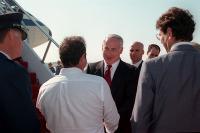
As part of the effort by the Obama administration earlier this year to make sure that the negotiations between the P5+1 powers and Iran over the latter’s nuclear program would not be derailed or obstructed, the National Security Agency (NSA) kept a close watch on Israel’s prime minister Benjamin Netanyahu. The agency collected intelligence on Netanyahu and other Israeli leaders in an attempt to learn what moves the Israeli leader was planning as part of his campaign to have Congress reject the agreement the United States was negotiating.
-
-
Jihadi cyberattacks; ISIS’s sex slaves; Iran’s missile test
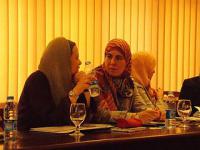
Hackers affiliated with the Jihadist group have been developing the capabilities to attack U.S. government and civilian targets, and such targets in other countries; Theologians working with ISIS have issued detailed and specific ruling on women slaves – explaining when “owners” of these women can have sex with them and who else among ISIS members may be entitled for sex services from enslaved women; On 26 December, the Iranian navy fired several rockets near three Western warships in the Gulf of Hormuz.
-
-
U.K. unprepared for terror attacks outside London: Experts

Security experts in the United Kingdom have expressed concerns about whether the United Kingdom has sufficient resources to respond to acts of terrorism outside of London. The questions were raised against the backdrop of reports that a “friendly” intelligence agency —- presumably, the CIA – has warned the governments of several European countries, the United Kingdom among them, that terrorists were planning a large-scale attack in a European capital on New Year’s Eve.
-
-
Tighter airport employee security; ISIS senior operative killed; Norway tightens asylum laws; West Bank settlements
The TSA is increasing the number of random checks of employees – of both airports and airlines — who hold badges which allow them to enter restricted area at airports; The Pentagon said that Charaffe al-Mouadan, a French national who had joined ISIS in Syria, was killed in a 24 December U.S. airstrike; The Norwegian government said that it is planning to ask the Norwegian parliament to change forty or so major and minor asylum laws in order to tighten the country’s asylum policy; Israel continues to plan for building in the E1 area of the West Bank — if the plan is implemented, it would, in effect, cut the West Bank in half, making the creation of a contiguous, viable Palestinian state impossible.
-
-
“Shared bad memories” bind fighters, terrorists to their groups
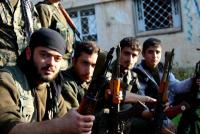
What binds military fighters or terrorists together so tightly that they are willing to sacrifice their own lives for their causes? Previous research has shown that such extreme behavior can be driven by “identity fusion,” a strong sense of “oneness” with their group. Researchers have now shed new light on the role that shared emotional experiences plays in this fusion between people’s personal and group identities.
-
-
Yes, let’s have a frank and open discussion about the causes of extremism and terrorism
Recent research, set out to identify why Muslims in Western societies embrace violent extremism, identified four causes: personal and collective grievances; networks and interpersonal ties; political and religious ideologies; and enabling environments and support structures. Tackling these causes in a holistic way is what is required to counter violent extremism effectively. Uninformed comments from politicians about Islam do not promote an open and informed debate. They serve only to sideline and alienate Muslims who are best placed to tackle Islamists and violent extremists. The irony is that alienation and marginalization also make the role of counter-terrorism policing much harder. Emphasizing only one possible cause of terrorism and extremism is all about politics. What we need instead is a sincere effort to actually think about and solve the problem of violent extremism.
-
-
European capitals on alert after warnings of possible terror attacks before the New Year

Police forces in several European capitals say that they have been advised by a “friendly” intelligence service of the possibility of fresh terror attacks launched before the New Year. The reports did not name specific capitals, but that security measures in Vienna, Austria, have been beefed up considerably. The Austrian police said they were responding to concrete information about the possibility of an attack between Christmas and the New Year which would take place in “crowded places.”
-
-
Brazil-Israel stand-off over embassy appointment; teaching German to children refugees
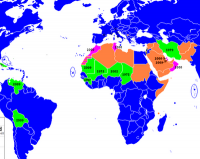
Israel’s outgoing ambassador to Brazil, Reda Mansour, has completed his tour in Brasilia last week and returned to Israel. Brazil, however, is unwilling to accept his replacement — Dani Dayan, a former head of the Jewish settlement council in the Palestinian territories who lives in the occupied West Bank; Germany is in the process of recruiting 8,500 teachers to teach German to children of refugees. The German government estimates that about 196,000 refugee children will enter the German school system this year.
-
-
San Bernardino mosque may be reason for barring British Muslim family from entering U.S.

Muhammad Mahmood, 47, who is a U.S. citizen and who a runs a car repair shop in San Bernardino, California, speculated that the reason his two brothers, their wives, and their children — all of them British citizens – have been barred from entering the United States to visit Disneyland was that he prays at the same mosque where one of the San Bernardino shooters, Syed Farook, used to pray.
-
-
Survey reveals religious tolerance and declining extremism in Tunisia
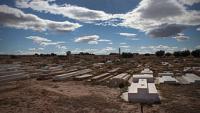
A new survey reveals significant shifts in how Tunisians view the role of religion in politics, religious tolerance, political violence, Western political models, and their own national identity. The survey, conducted during the spring and summer of 2015, shows an increase in support for social individualism, a decline in support for political Islam, a significant increase in preference for Western-style democratic government, and an increase in religious tolerance.
-
More headlines
The long view
Preventing Another 'Jan. 6' Starts by Changing How Elections Are Certified, Experts Say
The 2024 presidential election may be a rematch between President Joe Biden and former President Donald Trump, but preventing a repeat of Jan. 6, 2021 — when false claims of a stolen election promoted by Donald Trump and his allies led to an insurrection at the U.S. Capitol —will be top of mind this election year. Research finds broad support among public for nonpartisan certification commissions.
States Rush to Combat AI Threat to Elections
This year’s presidential election will be the first since generative AI became widely available. That’s raising fears that millions of voters could be deceived by a barrage of political deepfakes. Congress has done little to address the issue, but states are moving aggressively to respond — though questions remain about how effective any new measures to combat AI-created disinformation will be.
Chinese Government Hackers Targeted Critics of China, U.S. Businesses and Politicians
An indictment was unsealed Monday charging seven nationals of the People’s Republic of China (PRC) with conspiracy to commit computer intrusions and conspiracy to commit wire fraud for their involvement in a PRC-based hacking group that spent approximately 14 years targeting U.S. and foreign critics, businesses, and political officials in furtherance of the PRC’s economic espionage and foreign intelligence objectives.
European Arms Imports Nearly Double, U.S. and French Exports Rise, and Russian Exports Fall Sharply
States in Europe almost doubled their imports of major arms (+94 per cent) between 2014–18 and 2019–23. The United States increased its arms exports by 17 per cent between 2014–18 and 2019–23, while Russia’s arms exports halved. Russia was for the first time the third largest arms exporter, falling just behind France.
LNG Exports Have Had No Impact on Domestic Energy Costs: Analysis
U.S. liquified natural gas (LNG) exports have not had any sustained and significant direct impact on U.S. natural gas prices and have, in fact, spurred production and productivity gains, which contribute to downward pressure on domestic prices.
